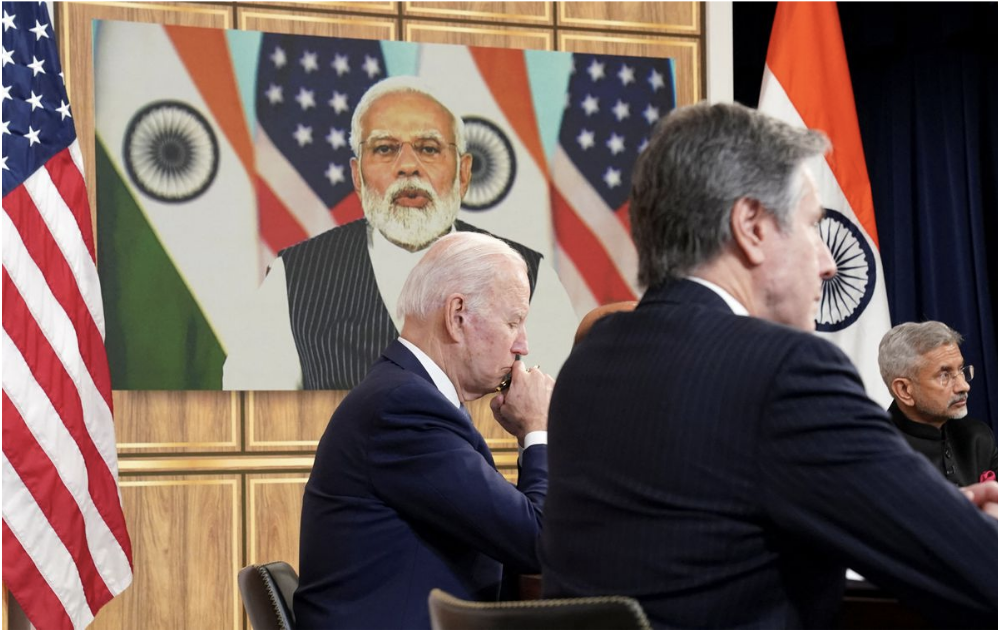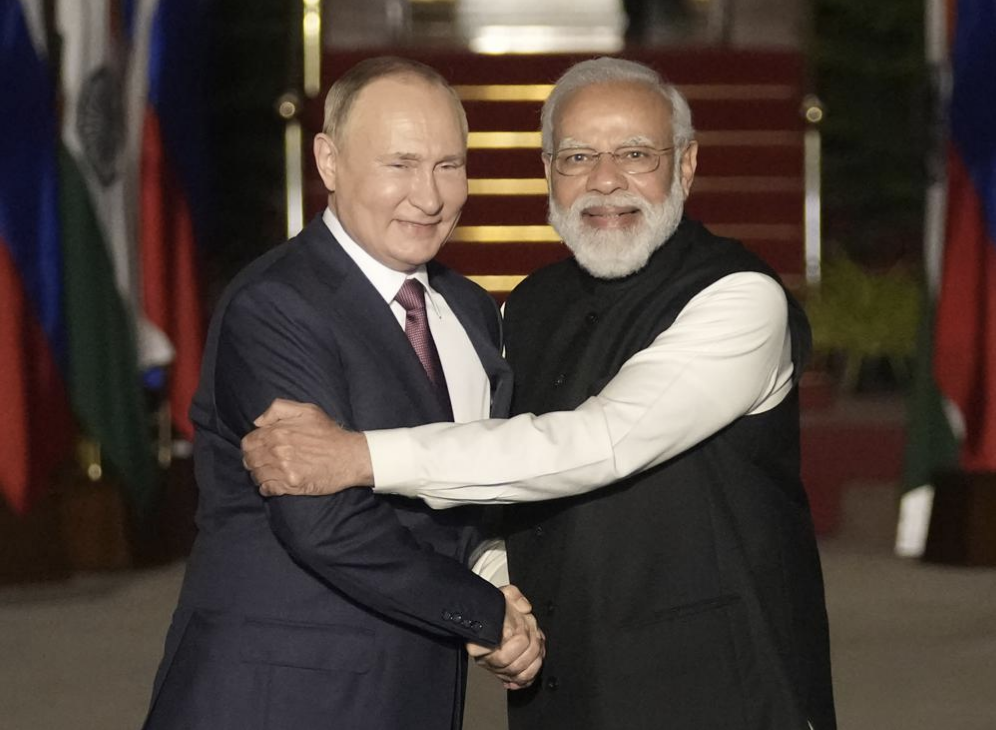Biden and Modi Meet as Russia Drives Wedge in Close Ties
President Biden speaks with Indian Prime Minister Narendra Modi on April 11th, 2022. Photo: Kevin Lamarque / Reuters.
President Biden hosted a virtual meeting with Prime Minister Narendra Modi in the moments before the annual 2+2 Dialogue between India’s and America’s defense and foreign ministers. The April 11th meeting between both foreign leaders struck a cooperative tone for strengthening the partnership between both states, as the invasion of Ukraine creates a wedge in how both global powers have approached Russia.
In the aftermath of Russia’s invasion of Ukraine, President Biden has taken a direct approach to confront nations who have attempted to take a neutral path and affirmed nations that try to do so will be “stained by association.” The decisive aim to isolate Russia on the world stage has largely succeeded among western allies, where condemnation and harsh sanctions were vociferously instated. In Asia, however, the United States has encountered difficulty in separating Russia from close partners such as China and India.
India’s own relationship with Russia has remained historically strong. Soviet support for India during the Cold War provided an impetus for India, as a neutral nation, to strike a sympathetic attitude for its distant northern friend. India’s amicable relations continued in the post-Cold War era through New Delhi’s reliance on Russian military technology. Russia, in turn, has supported India’s status as a regional power and has held regular summits with Modi.
The history between these nations has therefore made India, a rising power, face a complicated decision as to how to approach Russia’s latest actions. Modi’s foreign minister insisted that India “has close and friendly relations” with both nations and will maintain a neutral path. The continued engagement with Russia, however, has provided a backdrop for the White House’s decision to speak with Modi.
The hour-long talk largely focused on the differing strategies that both nations were taking in regards to the Russo-Ukrainian war. Nevertheless, the call between both leaders was regarded as friendly, with Biden applauding India’s humanitarian assistance to Ukraine and delving into other areas where the two nations could expand cooperation. US Press Secretary Jen Psaki called the talks “constructive” while noting India’s recent condemnation of the Bucha massacre.
Putin and Modi embrace at a summit between both nations on December 6th, 2021. Photo: Manish Swarup / AP Photo.
Behind closed doors, the U.S. has carefully attempted to broach the subject of tougher action against the Russian Federation. “India will make its own decisions,” a senior administration official noted.
Biden, while accepting of this answer, additionally warned Modi against increasing oil imports from Russia, which could run afoul of planned U.S. energy sanctions. Cheap oil prospects have drawn India towards expanding its energy imports from Moscow at an advantageous price. Indian imports of Russian petroleum are negligible — only 1% of India’s oil supply comes from Russia. The administration was quick to emphasize, however, that India is in a prime position to diversify its energy supply with US assistance.
Each statement put out by the administration appears to have been cautiously worded as to avoid pressuring India into a direct course of action. Despite India’s complicated position, the U.S. sees the country as a vital partner in countering Chinese influence within the region, and wants to balance India’s tepid stance regarding Russia with a harsher stance against China.
Opposing Chinese influence may be the necessary key to distance India from Russian support. While both nations remain allied for their own respective interests, a loss in credibility among western allies could leave India with less support against its proper enemy. Russia, needing Chinese support in the wake of its invasion, might not be able to do much in this regard.
These political changes, however, are likely a long-term consideration for Modi. In the interim, India will likely continue on its neutral path of denouncing violence while evading criticism of Russia. The U.S. will also continue on its path to change India’s mind. With the 2+2 dialogues between the American and Indian ministers occurring after the Biden-Modi meeting, the administration is set on hosting future meetings with the South Asian nation.


